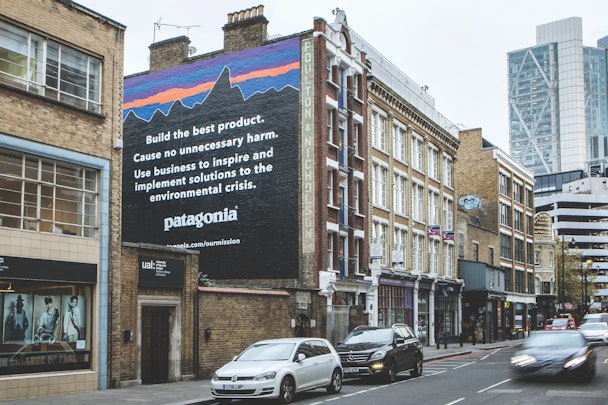42% of people believe ads can change the world, despite trust crisis
In 2019 it was revealed that public trust in advertising had hit a record low of 25%, but fresh research has shown that people in the UK are still relatively positive about the industry’s impact on society.

59% of people would like to see brands take a stance on environmental topics
A study from the Advertising Association (AA) and Credos on UK advertising’s social contribution (which drew responses from over 1,000 members of the British public and the ad industry) has revealed that 46% of adults believe advertising has a positive impact on society.
36% said advertising’s influence was neither positive nor negative and 18% said it was negative.
A further 42%, meanwhile, agreed that advertising had the power to help make the world a better place. Less than a quarter of respondents disagreed with that statement.
Last year, a separate research project between the AA, the Incorporated Society of British Advertisers (Isba) and Credos revealed that consumer trust in advertising had hit its lowest-ever ebb, dropping from 48% in 1992 to 25% in 2018. The dip in public favourability was exasperated by digital concerns, driven by problems such as a bombardment of ads and consumer concerns over privacy and regulation.
The AA has set up a working group which is working to a five-point blueprint to restore trust, but it hopes its new findings will highlight the opportunity brands have to rebuild trust by making a clear contribution to society.
The data shows that the social benefits of advertising account for 40% of all positive factors driving public perceptions of advertising’s impact. They also account for 38% of public favourability and 31% of the public’s trust in advertising.
45% of people said advertising could make a positive contribution by raising awareness for good causes, while 31% emphasized its ability to encourage people to make positive changes. 30% valued advertising that promoted products or services that are good for the planet or society.
Consumers also saw advertising as being able to make its mark by bringing people together and promoting a more 'harmonious society'.
More action from brands on big issues
In a landscape where purpose-driven branding has become the norm, 47% of public sentiment towards advertising is positive; social contributions made by advertisers accounted for 8% of positive public sentiment.
Other positive drivers include creativity and entertainment (25%), information (8%), and value exchange (4%). However, significant negative drivers tip the scale for consumers – with concerns around bombardment (21%), how advertising impacts sensitive sectors and vulnerable groups (16%) and intrusiveness (8%) top of mind.
Keith Weed, president of the AA and former Unilever chief marketing officer said: “After 25 years championing brand purpose-led marketing at Unilever, this is hugely gratifying for me to see. I have always believed advertising which drives and underpins positive social change, while growing responsible brands and businesses, is a win/win for society and the economy.”
Though consumers are largely optimistic about the contribution advertising makes towards society, the public want brands to take greater ownership on a number of serious issues.
Most people cited NGOs, including charities, as the most obvious sponsors of positive social messages, but there was an equal expectation of both government and the commercial sector to deliver too.
63% of people want brands to cover more mental health issues, while 59% of people would like to see brands take a stance on environmental topics. Domestic violence and abuse were also issues people said they’d like to see brands tackle (58%), along with homelessness and poverty (52%).
Karen Fraser, director at Credos, said: “One of the most striking findings of our research is that people in the UK are relatively positive about the impact of advertising on society. In fact, they are almost three times more likely to appreciate the positive impacts of advertising on society than they are to perceive the negatives.
“Consumers are aligned with industry practitioners in that they want to see more from businesses – and their advertising – when it comes to key social topics. While this has already been happening for some time, and advertising has been a catalyst for increased consumer awareness, there is seemingly a growing consumer demand. We can do better business by responding to it effectively.”
Earlier this week, the AA unveiled its own climate action group to co-ordinate industry efforts.

